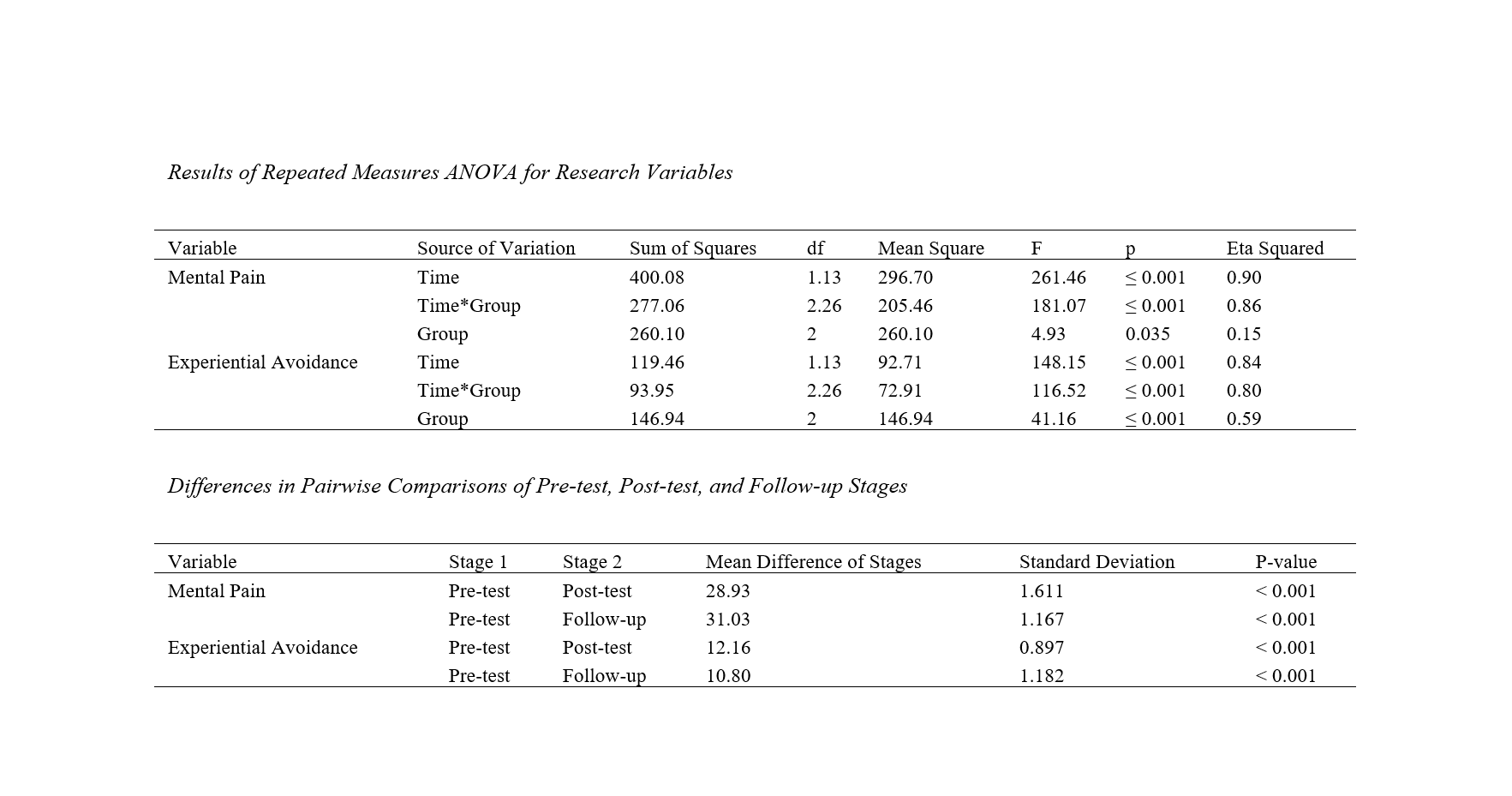Effectiveness of Mindfulness-Based Schema Therapy on Mental Pain and Experiential Avoidance in Patients with Cardiovascular Diseases
Abstract
Objective: Cardiovascular diseases are the primary cause of premature death worldwide, causing 18 million deaths annually. The present study aimed to investigate the effectiveness of mindfulness-based schema therapy on mental pain and experiential avoidance in patients with cardiovascular diseases.
Methods and Materials: The current study was a quasi-experimental pre-test, post-test design with a control group and a two-month follow-up period. The statistical population included patients visiting the Tehran Heart Center during March to May 2023. Thirty patients were randomly selected and assigned to experimental and control groups. The experimental group received mindfulness-based schema therapy in ten 90-minute sessions, once a week. The instruments used included the Orbach & Co (2003) Mental Pain questionnaire and the Bond & Co (2011) Experiential Avoidance questionnaire. Data were analyzed using repeated measures ANOVA with SPSS software version 26.
Findings: The results showed that mindfulness-based schema therapy has a significant effect on mental pain and experiential avoidance in patients with cardiovascular diseases (p < 0.001).
Conclusion: Based on the findings, it can be concluded that mindfulness-based schema therapy can be used as an effective intervention for reducing mental pain and experiential avoidance.
Downloads

Downloads
Additional Files
Published
Issue
Section
License
Copyright (c) 2024 Mojtaba Changi Ashtiani, Nabi Fattahi (Author); Donya Balali (Corresponding Author); Seyyed Hossein Alavi, Milad Mahmoudzadeh (Author)

This work is licensed under a Creative Commons Attribution-NonCommercial 4.0 International License.














